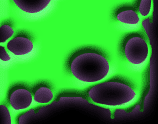|
For nearly two centuries, the novels of "Charles Dickens" have sweepingly influenced not only British literature, but society as a whole. Yet as modern, revisionist historians have examined the contributions made by "Dickens" and other authors of comparable literary brilliance, they have come face to face with the alarming realization that critics of the past were perhaps overzealous in their blind acceptance of these authors' gender identities. From a fresh, considerably less backward perspective, the very sexuality of these literary figures is clothed in ambiguity and cast in a truly dubious light. Forced to action by the anxiety of doubt, the mind of the modern reader is driven to ask a single, irrepressible question: Was Charles Dickens a woman? And inevitably, unalterably, infallibly, the answer to that query is "yes"!
When one considers the age-old proverb, "You are what you eat," in the light of this provocative debate, a clear and convincing rationale behind Charles Dickens' misrepresented sexuality emerges. A common, perhaps unifying theme among Dickens writings is that of gruel the oatmeal of yesteryear. This food plays an integral part in the lives of Dickens most celebrated characters, especially in the life of Oliver Twist, who many view as Dickens most autobiographical character. The key link between Oliver Twist and the supposed man Charles Dickens is not Twists status as a boy, but rather his enjoyment of oatmeal, which betrays Charles Dickens true gender identity. Surely oatmeal is not the food that a secure, undisputable man would choose to associate himself with so intimately. This form of sustenance is forever bound to the female race, to the vision of woman as the nurturing mother of society. It evokes images of primitive women bending over their cauldrons of gruel, laboring tirelessly, devoting their lives and sacrificing their very livelihood to the health and nourishment of their families. Would a man fully confident in his gender role willingly enter this sphere of influence, this role in society? The answer, irrevocably, is no!
On the basis of this eye-opening development, one can say with assurance that Charles Dickens was NOT a man as modern scientists and psychologists would deem one. This presents one with a choice: Was Dickens merely a man of confused and ambiguous sexuality, or was he indeed a woman?
In the quest for answers to this pressing question, one must delve deeply into the heart of oatmeal itself to discover the secrets of Dickens real gender identity. Perhaps the principal ingredient of Dickens beloved gruel, the predecessor of todays oatmeal, was rolled oats. Examining the alphabetic infrastructure of this ingredient reveals definitive evidence that Dickens was, in fact, a woman, and NOT an ambiguously gendered male. Rearranging the letters of the seemingly innocent and guileless phrase rolled oats unearths a veritable trove of enlightening information about Charles Dickens and her grievously misrepresented life. For instance, to the perceptive and discriminating modern reader, the following words leap off the page and into ones inner consciousness: red, real, old, stole, toad, told, lead, sat, sore, art, rat, eat, dot, root, sad, toe, stare, stale, odor, sold, ode, sell, tell, dell, loot, east, at, so, lard, lot, door, store, ollt, stolo, doot, etero, ast, ool, toslelor, and dlorloatse. Many, if not all of these astonishing words are heavily laden with double entendres and prove to be highly symbolic in the context of Dickens gender identity. Lard, rat, and toad are all derogatory terms that give one a sense that Dickens experienced deeply-rooted self-hatred because of her decision to allow the public to develop incorrect assumptions about her sexuality. If she had not sold her true identity as others told her was appropriate, she would not have felt so markedly sad and sore of heart. Her life would not have been filled with stale odor and lead doot. She could have felt the freedom to stare the door of opportunity in the face, put her best toe forward, and dlorloatse into the dell of vernal happiness and an existence marked, above else, by toslelor.
The truth has set the modern world free; the fight has been fought; the battle has been won. Unequivocally, Charles Dickens was a devastatingly suppressed woman, forced to assume the guise of a man to attain the place in the literary world that she clearly deserved. Beneath the veneer of her thematic focus on oatmeal lies the hidden truth behind this great British female author. Drink, one and all taste and see the very depths of the river of enlightenment that this knowledge magnanimously offers to the forward-thinking modernist. For when one casts off even a phantasmic shadow of the man Dickens was traditionally considered, one can discern the meaning not only of oatmeal, but of life itself.
|

